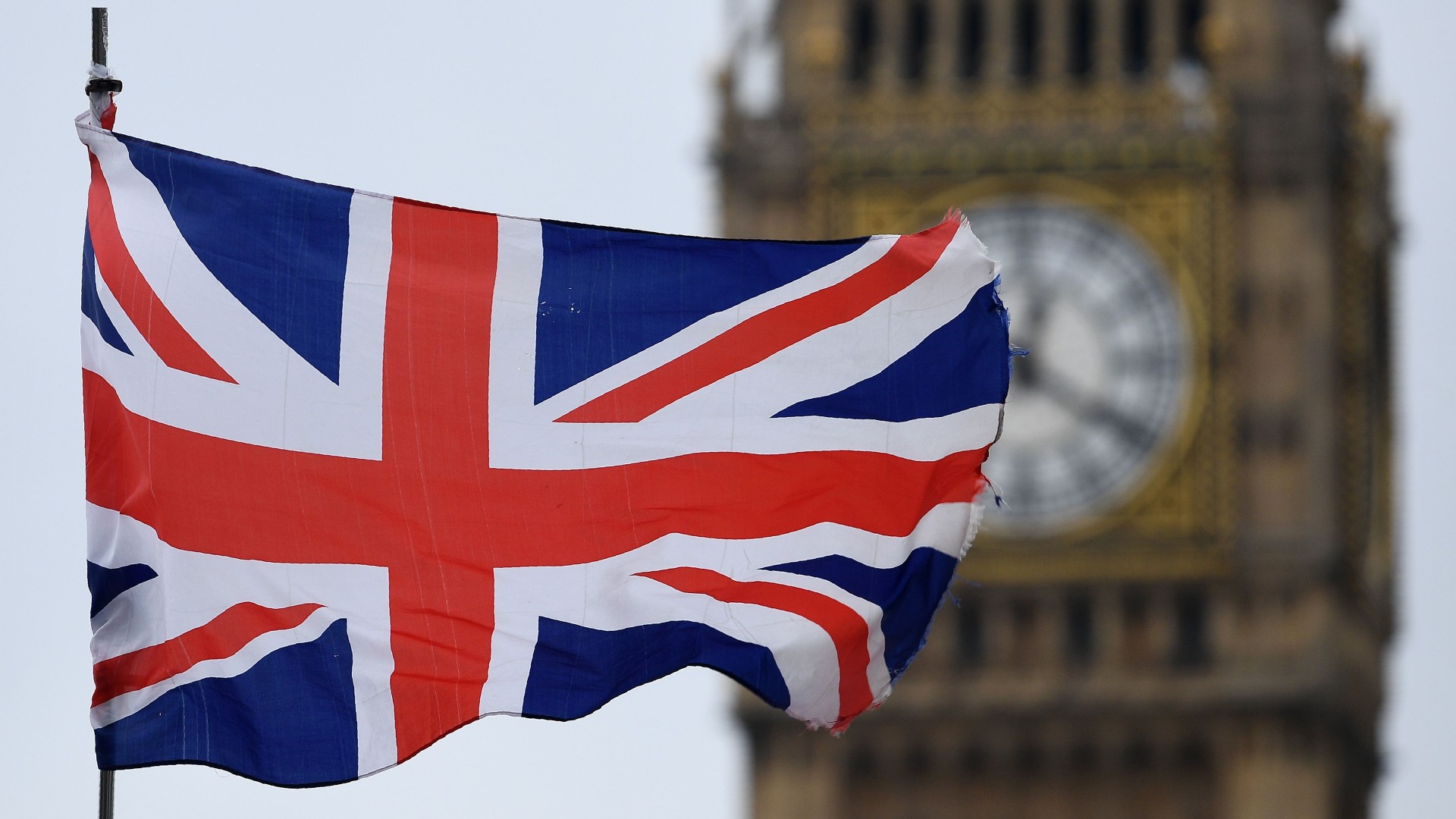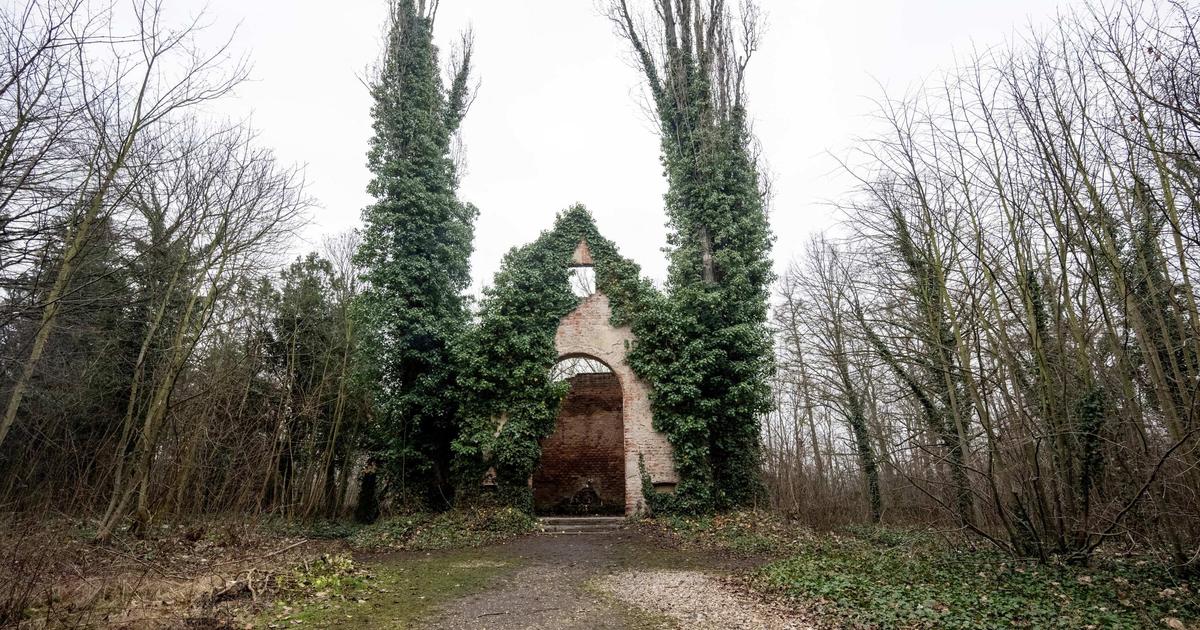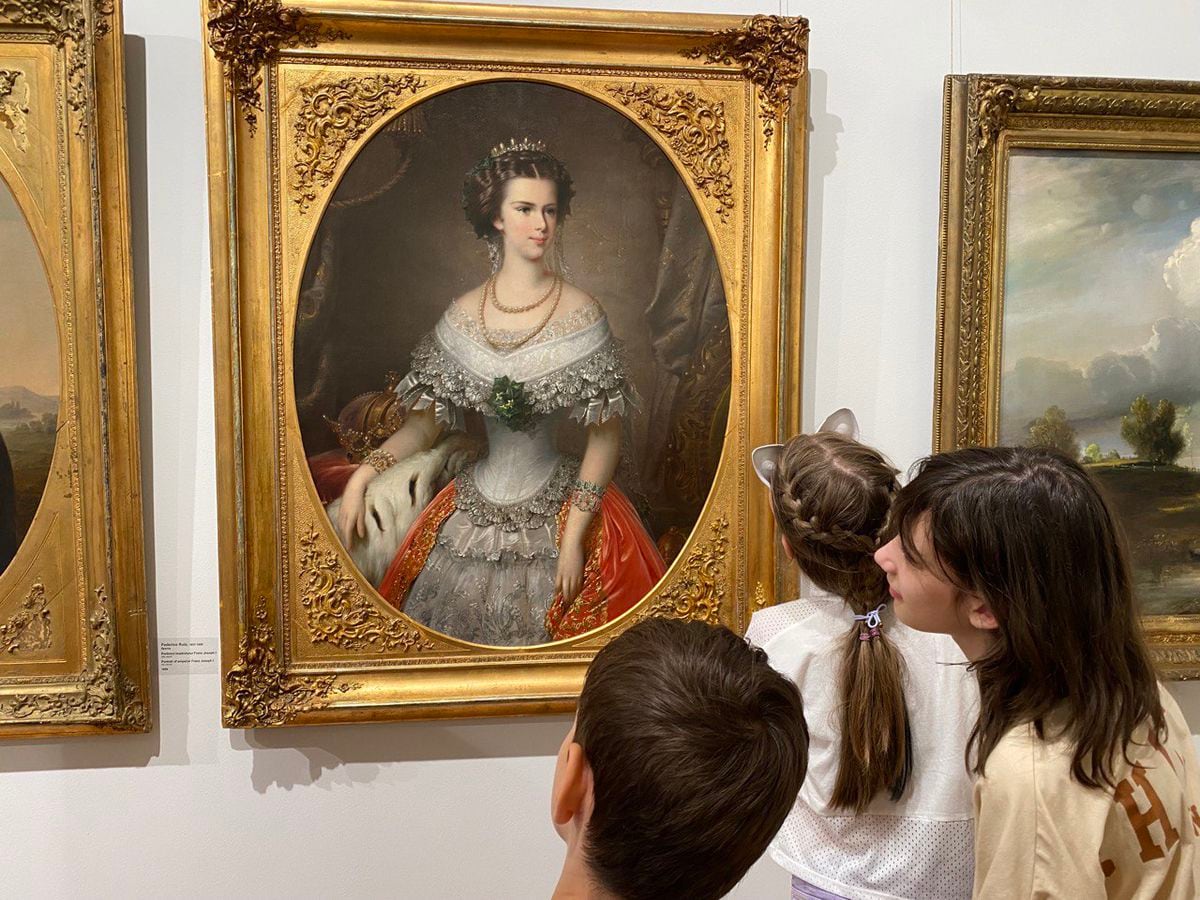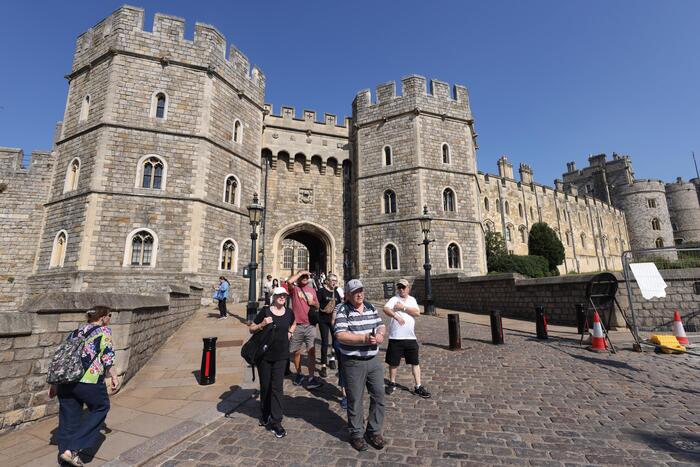The longest-serving British monarchs 1:29
(CNN Spanish) --
The reign of Elizabeth II in the United Kingdom lasted more than 70 years, longer than any other in British history, and occupied almost the entire second half of the 20th century, marked by the decolonization of the British Empire , and the beginning of the 21st century.
But, above all, Elizabeth, who died last week and was succeeded by her son Charles III, reigned during the progressive disintegration of the British Empire, which had already begun during the reign of her father George VI.
This process of decolonization ended up leaving many shadows on the crown and the imperial legacy, and great chaos in all corners of the world.
Funeral of Queen Elizabeth II: date, details and how to watch online and on television
In the midst of this, Isabel promoted like no other monarch the development of the Commonwealth of Nations, a voluntary organization formed by former British colonies, in an attempt to preserve the influence of the United Kingdom and the crown.
And it is not that Elizabeth personally had an active role in decision-making, but as monarch she represented a British state of global reach.
London bids the queen farewell with these quirky souvenirs 1:24
This is a look at the global chaos left by the decolonization of the British Empire during the 20th century and under the reign of the House of Windsor.
advertising
The decline of the empire
The United Kingdom of Great Britain began to expand in the 17th century, with its first colonies in North America, Africa and India, and the trend increased in the 18th century.
In this first stage, it was a series of commercial and private initiatives, with the acceptance of the crown.
From the second half of the eighteenth century and then the nineteenth century, political and military competition with France, which also had its global empire, was one of the most important engines of the growth of British dominions and colonies around the world, already with a much greater presence of the crown and the British state in control of the territories.
The peak of the power and extent of the British Empire came in the late 19th and early 20th centuries, when it controlled almost a quarter of the world's land area and more than a quarter of its population.
The United Kingdom used its entire empire to fight in the First World War against the German Empire, its main rival on a planetary level after the century-long confrontation with France: troops from all corners of the world fought in the trenches in favor of the British.
The longest-serving British monarchs 1:29
Although the British Empire and its now ally, France, won that war, the conflict greatly weakened them and opened the door to other emerging powers such as the United States, Japan, and the Soviet Union.
The Second World War consolidated the British weakening: after losing its ally France in the early years, the United Kingdom prevailed in that conflict only thanks to its association with the United States and the USSR, which proved to be much more powerful and also have his own imperial ambitions.
In the postwar period, the British Empire was already in decline and at the beginning of a process of disintegration in the face of growing nationalism in the colonies, which sought their independence under the protection of the UN Decolonization Committee.
The case of Ireland, in the British Isles themselves
Ireland was incorporated into the crown in 1801, and the British state began to be called the United Kingdom of Great Britain and Ireland.
In the early 20th century, Irish nationalists unsuccessfully attempted to end British rule in the 1916 Easter Rising, and in 1922 Ireland finally became partially independent.
The island was divided between the Republic of Ireland, with its capital in Dublin, and Northern Ireland, with its capital in Belfast and to this day part of the United Kingdom.
A picket line of women trying to end the violence breaks through British troop lines to safety during riots in the Falls Road area of Belfast, Northern Ireland, in July 1970, amid the 'Troubles' .
(Credit: Gary Weaser/Keystone/Hulton Archive/Getty Images)
The division generated constant tensions, which in 1968 —during the reign of Elizabeth II— led to a wave of violence —known as "the problems", "The Troubles" in English— in Northern Ireland between Protestants, who mostly sought to remain in the United Kingdom, and Catholics, who sought the unification of the Republic of Ireland.
For 30 years, Northern Ireland, and much of the rest of the British Isles, were the scene of clashes and terrorist actions between the Irish Republican Army (IRA) and the British authorities, which culminated in the 1998 agreements and left a balance of 3,500 dead.
India, the imperial jewel in Asia
The British Empire built its first settlements in India at the beginning of the 17th century, and in the following centuries it continued to expand its presence, conquering territory and crushing revolts, as well as defeating its European rivals, until it consolidated almost total control in the late 19th century. of what would be the jewel of the empire.
Taking advantage of the British weakness after the Second World War and fueled by nationalism, India achieved its independence in 1947, during the reign of Elizabeth's father, George VI, and amid a wave of violent protests after the partition of the territory between India and Pakistan by London.
This partition continues to be one of the most important sources of conflict in the world.
India and Pakistan fought four wars (1947, 1965, 1971 and 1999) and numerous border conflicts, and both countries developed nuclear weapons to defend themselves against each other.
A crowd in New Delhi, India, watching a motorcade on Independence Day, on August 21, 1947. (Credit: Fox Photos/Getty Images)
Many other countries in Asia achieved their independence from the United Kingdom in the following years: Malaysia (1957), Burma (today Myanmar, 1948) —suffered a military coup in 2021—, Ceylon (today Sri Lanka, 1948), Singapore (1963) , to name just a few.
Hong Kong, the last great colony
It was one of the last important colonies of the British Empire, returned to China in 1997 under a special status of protection of the government system, economy and autonomy of the enclave, which the British controlled since the 19th century.
Charles, then Prince of Wales and future king, participated in the ceremony of transfer of sovereignty.
This special status of Hong Kong, democratic and capitalist, within China, authoritarian and communist, has generated numerous tensions in recent years, with waves of violent protests in 2014 (the "Umbrella Revolution"), and again between 2019 and 2021 against a series of bills that affect their autonomy.
The then Prince Charles, now the King, bids farewell to Hong Kong on behalf of the Queen at the British Departure Ceremony on June 30.
(Credit: MIKE FIALA/AFP via Getty Images)
The Falkland Islands and other overseas territories
The British crown currently controls 14 overseas territories, including the Malvinas Islands (known as the Falklands in the United Kingdom), whose sovereignty Argentina claims.
Argentina bases its claim on the principle of territorial integrity: it maintains that it inherited the territory of the Viceroyalty of the Río de la Plata after its independence and that it exercised its sovereignty as of 1820. In 1833, the United Kingdom expelled the Argentine population, invoking a earlier claim, and took control of the islands.
In 1982 Argentina took control of the Falkland Islands by force, and the United Kingdom sent a fleet to recover them.
After a short but intense two-month war in which 649 Argentine soldiers, 255 British soldiers and 3 civilians died, the Islands returned to British control and since then tensions between the two countries have persisted.
Overseas territories held by the British crown include Ascension Island, the Cayman Islands, Gibraltar and Turks and Caicos.
40 years have passed since the Falklands War 1:44
Caribbean
During the 18th century the United Kingdom established a strong presence in the Caribbean, which was economically exploited through the use of slaves, despite the fact that slavery was abolished in the British Isles in 1807: it is estimated that close to two million slaves were brought to the region.
Even after slavery was completely abolished in the empire in 1830, freed slaves remained in a vulnerable situation in the Caribbean, with restrictions on land purchase and low wages.
This social and political tension accompanies the former British colonies in the Caribbean to this day, and the Crown has not been without criticism.
"The British left a mess when formal colonization began to end in the 1960s," Manjapra, a Bahamian-born professor of history at Tufts University (Massachusetts), told CNN.
"Yet during the Queen's first speech in Jamaica, in 1966, she spoke only of the 'loyalty and kindness' of the people of the Commonwealth. She never acknowledged the damage caused by looting, massacres, deprivation and racism. of British rule."
Bahamas will leave the monarchy and become a republic 0:48
Among the many British colonies that became independent in the second half of the 20th century are the Bahamas (1973), Barbados (1966), Jamaica (1962), and Trinidad and Tobago (1962).
Middle East
The British Empire already had a significant presence in the Middle East when, at the end of the First World War, it took over the territories of the Ottoman Empire after its dissolution.
At the time of the accession of Elizabeth II, the United Kingdom dominated almost the entire region, which was beginning to grow in importance due to the presence of oil and gas in large quantities: it had direct control of Egypt, Palestine, Yemen and Iraq, and agreements signed with Qatar, Bahrain and the United Arab Emirates.
But he no longer had the ability to maintain this dominance, and his exit was very chaotic.
The case of the British Mandate for Palestine, established in 1920, is still the most resonant today.
Resolution 181 (II), approved in 1947 by the newborn Assembly of the United Nations Organization, called for the partition of the mandate of two States —one Arab and the other Jewish— and recommended the United Kingdom, as the mandatory power, to apply this partition.
But the British Empire withdrew from the territory in May 1948 without achieving this goal, and immediately the Arab-Israeli war (War of Independence, for Israel) broke out.
It was not the first: Israel and the Arab countries clashed again in the Suez crisis in 1956 —in which the United Kingdom participated—, in the Six-Day War in 1967 and in the Yom Kippur War in 1973, and the conflict between Palestinians and Israelis remains one of the main sources of tension today.
British troops patrolling a street in Port Said, Egypt, during the Suez Crisis, on November 12, 1956. (Credit: Fox Photos/Hulton Archive/Getty Images)
The British withdrawal from Iraq and Yemen also opened the door to chaos: both countries went from violence and instability to military dictatorships and civil war.
The UK actually returned to Iraq in 2003, taking part in the US invasion to topple Saddam Hussein, plunging the country back into a decade of chaos and sectarian violence, from which terrorist groups such as the Islamic State emerged.
Iraq continues to suffer from this sectarian violence and instability today, while Yemen, one of the poorest countries in the world, has been in civil war since 2015.
Africa
When thinking about European colonialism and imperialism, few places show it as faithfully as Africa, where the powers violently divided up the territories for much of the 19th century.
It is there that Elizabeth II's legacy becomes more complex: no other British king or queen traveled the continent like her, but this presence made her both a popular figure and a symbol of British oppression of African countries.
Britain looks back wistfully at its past 2:58
In Kenya, dominated by the United Kingdom since 1895, one of the worst atrocities under British rule took place: the suppression of the Mau Mau uprising of 1952, the year that Elizabeth was crowned.
During that time colonial administration officials tortured, castrated and sexually assaulted and held in concentration camps up to 150,000 Kenyans, many of whom sued and won compensation in 2011.
Britain was also active in the civil war in Nigeria, secretly supplying the government with weapons to use against Biafrans who wanted to form a breakaway republic.
Between one and three million people died.
In South Africa, the British authority is associated with the period of apartheid, the legalized racial segregation that the government imposed until the 1990s, and the country is now asking for the return of a diamond mined in 1905 and mounted on a royal scepter belonging to the queen. .
At the same time, Elizabeth maintained a good relationship with Nelson Mandela, the South African leader who played a major role in the rise of apartheid, visiting him twice, emphasizing the crown's ambivalent legacy.
Sudan, which gained independence in 1956, also experienced decades of sectarian tension and violence, leading to South Sudan's independence in 2011.
And Namibia, a former German colony later taken over by the British Empire, was controlled by South Africa until 1990. In between, South Africa participated in the civil war in Angola, which also involved Namibia.
With reporting by Brandon Tensley, Scott Anderson, Stephanie Busari, and Zeena Saifi.
United Kingdom









